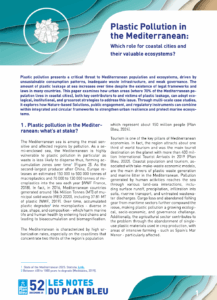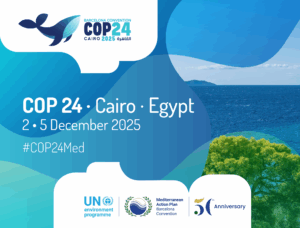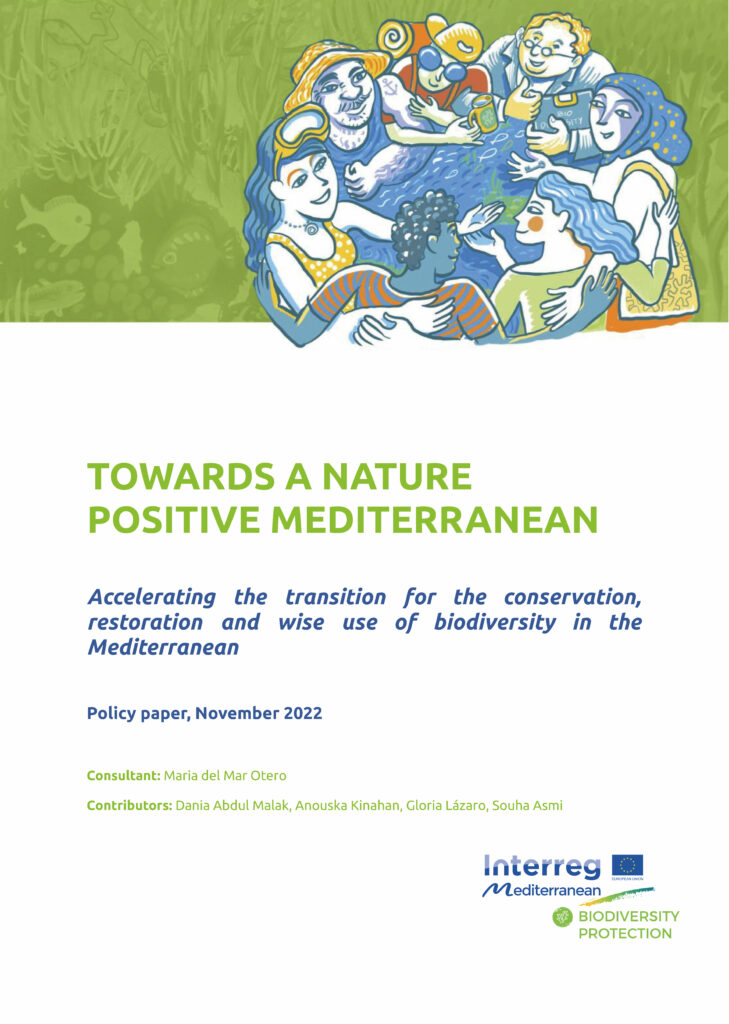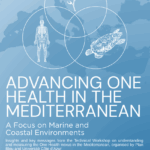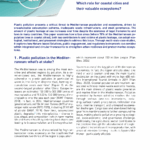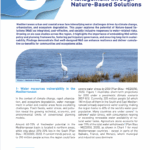Plan Bleu, as partner of the Interreg Med Mediterranean Biodiversity protection Community (MBPC), leading the capitalisation activities has contributed to the policy paper “Towards a Nature Positive Mediterranean. Accelerating the transition for the conservation, restoration and wise use of biodiversity in the Mediterranean” and its depolicy paper with policy recommendations to mobilise transformational change and reverse the catastrophic biodiversity loss and climate change impacts we are currently witnessing in the Mediterranean.
The document draws on various recent policy discussions and papers at a global level, particularly the transformation pathways from the Global Assessment Report on Biodiversity and Ecosystem Services of the Intergovernmental Science-Policy Platform on Biodiversity and Ecosystem Services (IPBES). It also stems from the need to tackle climate change and biodiversity targets simultaneously to generate solutions at the Mediterranean basin.
Building on the IPBES findings, this paper identifies transformative actions that bring about change in the conservation, restoration and wise use of coastal and marine biodiversity ensuring the positive coexistence between economic sectors and sensitive species and habitats found in the Mediterranean region. It argues for the feasible implementation of these actions through available solutions and tools developed by the Interreg Mediterranean Biodiversity Protection Community, among others, that would place the region in the path of ecological resilience and nature recovery.
This document is the result of a collaborative effort between the MBPC team and its modular projects but also the contribution from SPA/RAC.
The document was officially released during the final event of the MBPC “The Mediterranean leading the way – A cooperative framework to strengthen area-based nature conservation actions”which took place in Brussels from 2 to 4 November 2022. The event provided an opportunity for networking and discussions among decision makers, local authorities, practitioners, researchers and organisations on how to integrate tested solutions into regional and sectoral agendas and align with EU present and future agendas (such as the Agenda 2030 or the EU Green Deal) and global sustainability targets.






